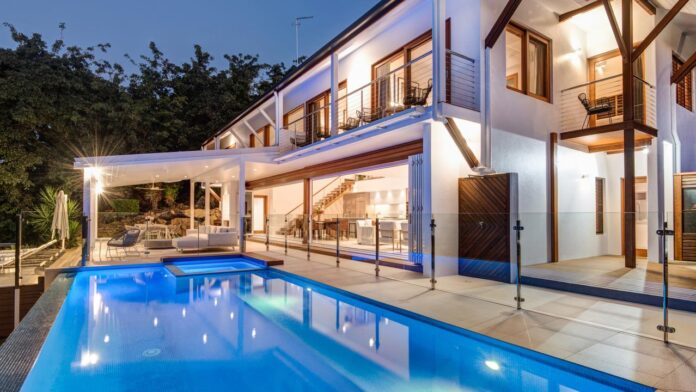Big group Airbnb bookings – like birthdays and weddings – could be a thing of the past, the short term rental company has warned, as the NSW Government ponders placing further restrictions on the controversial sector.
The US firm has said an additional move to restrict the number of people holidaying per room could have “unintended practical implications,” such as preventing parents sleeping with a newborn.
Airbnb has also recommended scrapping limits on the number of days properties can be let out to visitors.
The company stated its guests spent $4bn last year in NSW and supported almost 10,000 jobs.
The state government is looking into how properties are regulated that are let out on sites like Airbnb and Stayz as the squeeze on the long term rental market continues.
In a discussion paper, the NSW Government stated that rents have increased by 38 per cent in the state since 2019 and the vacancy rate in Greater Sydney was 1.7 per cent in December 20203 down below the decade average of 2.3 per cent.
Meanwhile, in tourism hot spots homelessness is soaring with more rough sleepers now in and around Byron Bay than Sydney’s CBD.
“As housing affordability in NSW has decreased, people have become concerned that owners are making fewer properties available for long-term use, and that this may be contributing to a rise in costs,” states the discussion paper from the NSW Planning Department.
Big group getaways
The Government said the current regulations for short term rentals, introduced almost a decade ago, were “deliberately ‘light touch’”.
There have been suggestions that restrictions on properties that are currently advertised on Airbnb could encourage building owners to open them up to longer term renters instead.
The Government’s discussion paper specifically suggests “limits on the number of guests that can use a short-term rental property”.
But Airbnb pushed back on this in its submission noting that it was similar to a 2016 proposal, which was rejected, of no more than two people per room or 12 guests overall, whichever was fewer.
That could mean larger groups – such as wedding parties and holidaying friends – might struggle to find somewhere to stay.
“Our view is that overly prescriptive requirements of this nature are unnecessarily complex and may have unintended practical implications,” stated Airbnb.
“For example, the bedroom limit would have expressly prohibited parents sleeping in a bedroom along with a new born baby or child.
“The current rules instead apply the permissible limits that are allowed under the existing planning consent, which is a more practical approach.”
Day caps
The NSW Government also raised the prospect of lowering the number of days a property can be rented out for short term use.
“Lower day caps on non-hosted short-term rental accommodation can encourage some property owners to lease their property in the long-term rental market … because day caps may make short-term rental accommodation less profitable,” it stated.
Sydney has a cap of 180 days per year in which a property can be let out on Airbnb, Stayz has similar while, from September, many properties near Byron Bay will only be able to be let out for 60 days per year.
But Airbnb countered that the “day caps” were “ineffective” and should be axed altogether with property owners allowed to let out homes and apartments for as many days as they wished.
The company said its “experience” had showed that caps had not seen a major shift of those properties over to longer term renters.
“Many properties listed on platforms like Airbnb will never move to the long-term rental market because they were never used in that way previously, or they are not suitable for that purpose.
“This is because hosts might be sharing their primary place of residence, or because the listing has always been a holiday home and is used by the host themselves.”
Airbnb, Stayz open to levy on bills
However, both Airbnb and Stayz were more open to a levy added to bills.
Victoria will introduce a 7.5 per cent levy to short term stays from 2025. It does not apply to hotels.
The state opposition has labelled the levy a “holiday and tourism tax”.
In its submission, Expedia, which owns booking platforms Stayz and Wotif, backed a levy set at a “sensible” rate, but maintained that it must be applied to all accommodation, including hotels.
Eacham Curry, senior director, government and corporate affairs at Stayz told news.com.au that “Stayz has always advocated for the short term rental accommodation sector to make a contribution that recognises the impact that it has on the provision of services by state and local governments”.
He added that “any levy should be applied to all short-term accommodation providers”.
“Short term rental accommodation is not the cause or the solution to the current pressures on housing,” he added.
Stayz also pushed back on day caps and limits on guest numbers.
“None of these approaches would address current concerns around housing and could risk the value short term rental accommodation brings to local communities and their economies,” said Mr Curry.
[ad_2]


